Raising the Next Generation: Black Parents and Caregivers
Black parents’ and caregivers’ experience raising children is one that is marked by optimism while facing long-standing, systemic barriers to thrive.
Asian American and Pacific Islander parents and caregivers report themes of optimism, independence, and self-determination. Their responses reflect an ethos around hard work to help their children succeed, but they also perceive outside forces they can’t control. They can see it undercutting their own ability to shape their children’s future.
The vast majority of Asian American and Pacific Islander parents agree they are optimistic about the future of this country for their children. Parents who have lower incomes and parents born outside the U.S. are especially optimistic.
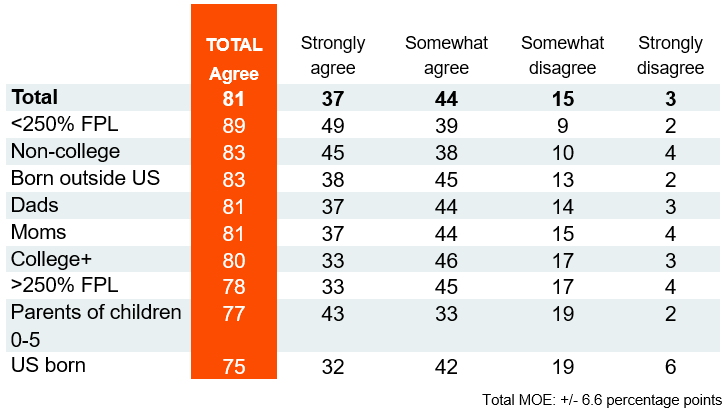
“I want my child to have a better life than I do. The reason we came here is because we all have that same aspiration, we want our children to have a better life.” Asian American and Pacific Islander focus group participant, Illinois
Nearly all Asian American and Pacific Islander parents surveyed cited a strong work ethic, creativity in solving problems, and a feeling you have the power to change your family’s situation as their primary strengths and assets in helping their families get through difficult times.
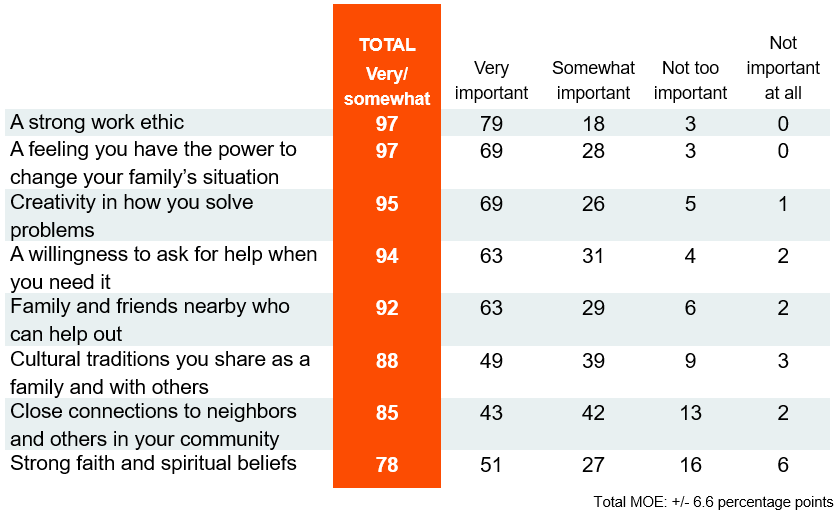
“Everyday living is a struggle. We just have to push through it. There’s no failing. Once you have a kid, once you have a family … in my book, there’s no failing. You have to do what you have to do to survive.” Asian American and Pacific Islander focus group participant, California
A majority of Asian American and Pacific Islander parents feel it is very likely that their children will receive a quality K-12 education, have a chance to go to college/vocational school, and grow up in a safe neighborhood.
“If my children can study properly, they will have a brighter future compared to mine.” Asian American and Pacific Islander focus group participant, Texas
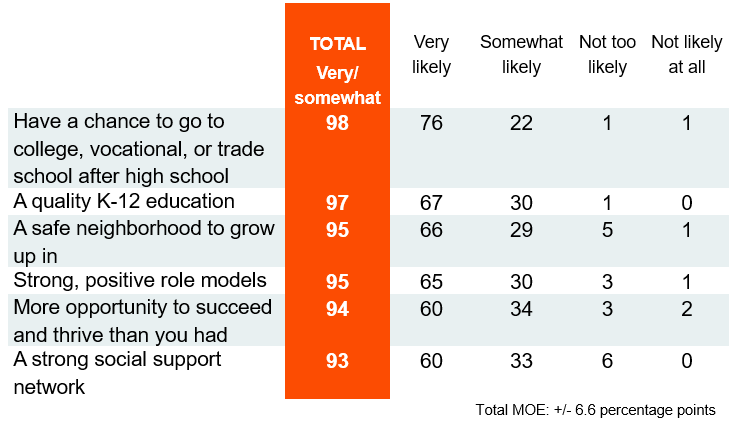
At the same time, they recognize limited opportunities for themselves and their children. Most parents are worried that despite their efforts to give their children everything for them to succeed, America does not offer every child the same opportunities.
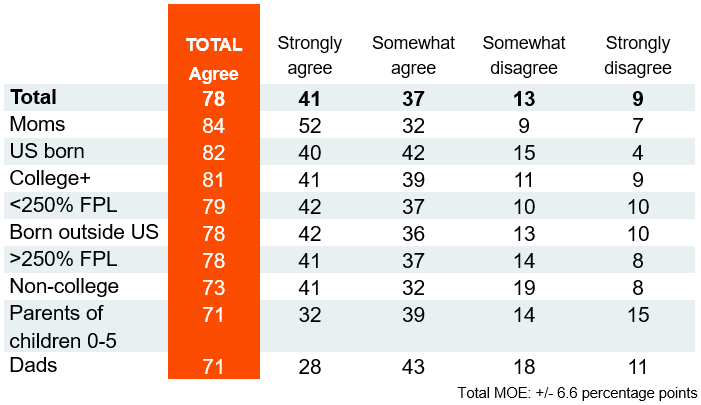
“I think, when people see that you are of different ethnicity, they will doubt you.” Asian American and Pacific Islander focus group participant, Illinois
These parents have also experienced racism and discrimination. Asian American and Pacific Islander parents with lower incomes and those who did not attend college are most likely to feel like systemic racism makes it harder for someone like them to get a good paying job or get good medical care.
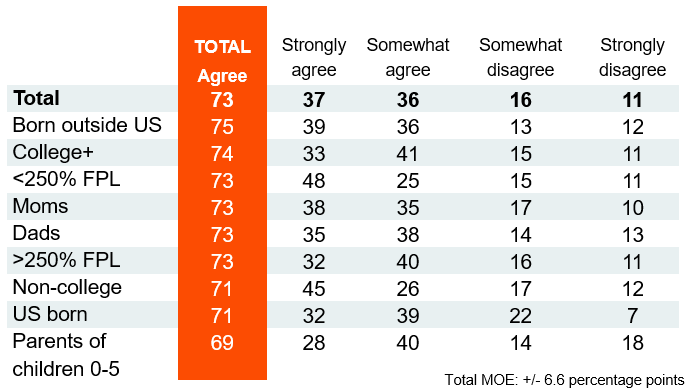
“I experienced, at work right now, the worst racism in my life.” Asian American and Pacific Islander focus group participant, California
This study includes equal representation of parents and caregivers from five different racial and ethnic backgrounds: Asian American and Pacific Islander as well as Black, Indigenous, Latino, and White. Explore detailed reports of the survey findings for the other groups here.
Black parents’ and caregivers’ experience raising children is one that is marked by optimism while facing long-standing, systemic barriers to thrive.
Indigenous parents and caregivers surveyed paint an interesting picture—a dichotomy that reflects a complex and complicated reality of their nations and communities in America.
Latino parents and caregivers see a hopeful future for their families and are determined to see their children get more opportunities to succeed in life than they did.
White parents and caregivers report themes of optimism, but they worry about their children's mental health and don't see the same opportunities to succeed for all children.
“Raising the Next Generation: A Survey of Parents and Caregivers” examines what it is like to raise children in America today by asking questions to equal numbers of parents and caregivers from five different racial and ethnic groups: Asian American and Pacific Islander, Black, Indigenous, Latino, and White. The survey builds on interviews and focus groups conducted over an 18-month period in 16 cities and in seven different languages with parents and caregivers from more than a dozen racial, ethnic, or cultural backgrounds. The survey and qualitative research were conducted by the nonpartisan research firm PerryUndem and a broad set of partners with culturally specific expertise.